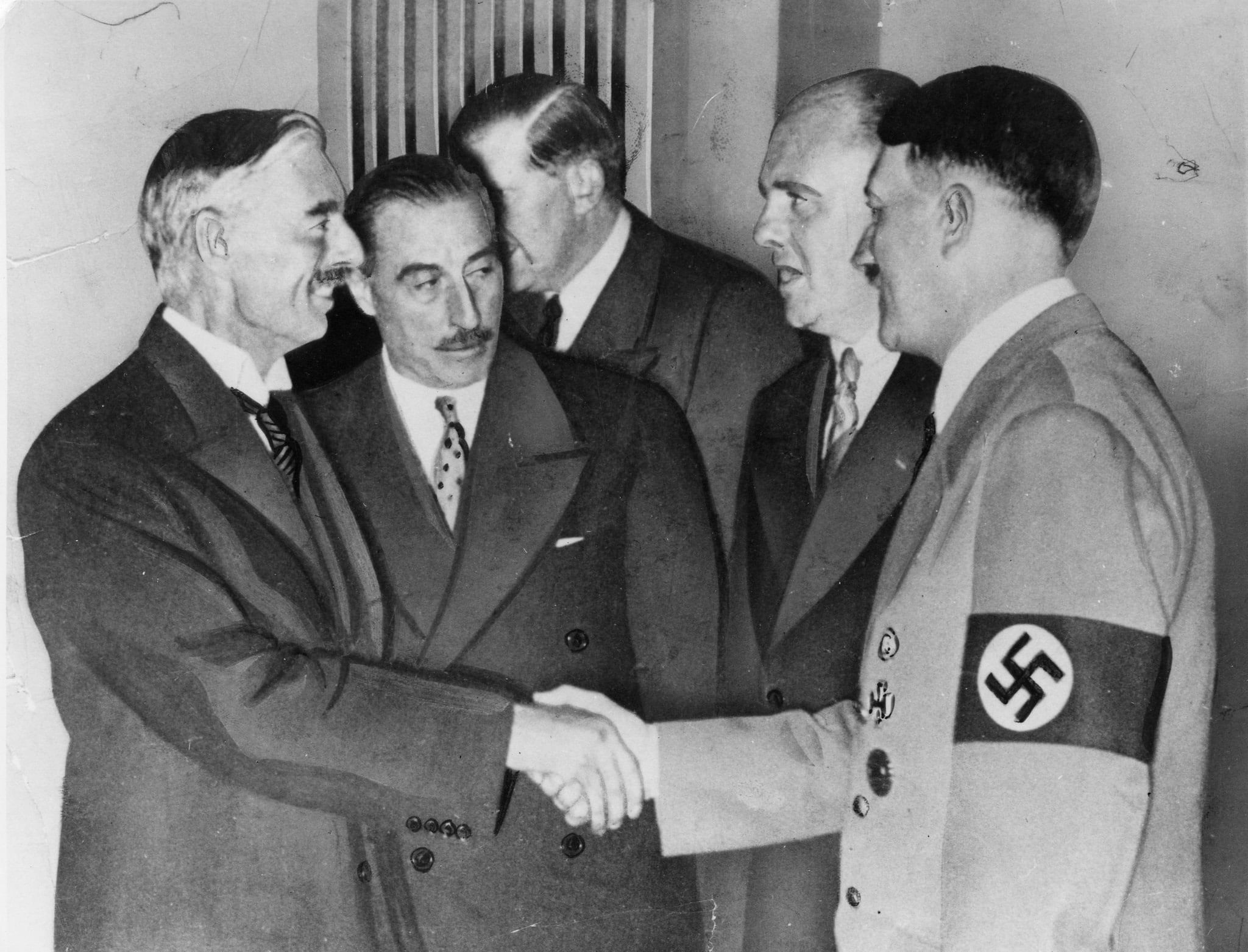29.9. 1938 Signing of the Munich Agreement
Categories: Second World War , Calendar

On the night of 29th to 30th September 1938, the in Munich, Bavaria the Munich Agreement was signed. Subsequently, German troops were to occupy the Sudetenland...
The Munich Agreement called for the Sudetenland, a western region of Czechoslovakia inhabited mostly by ethnic Germans, to bethe border areas of Bohemia, Moravia and those parts of Silesia connected to Bohemia, to evacuate the Czechs in five stages. Subsequently, German troops were to occupy the Sudetenland. In approving the Munich Agreement, Adolf Hitler promised peace and an end to territorial expansion, which he did not keep...
This agreement brought to a close an important phase in the foreign policy of France and Great Britain. Their prime ministers signed the agreement in the belief that they were acting in the interests of maintaining peace in Europe. On their return, they were greeted enthusiastically in both capitals as true saviours of the place. In France, the vast majority of politicians signed up to the Munich Agreement, with only the French Communist Party MPs being fundamentally opposed.
In the UK, by contrast, the Munich Agreement became a catalyst for further developments in foreign and ultimately domestic policy. "The prime minister in office, after its signing, spoke glowingly of a new internationalm arrangement that would ensure peace in Europe, but the following month his hardcritics, led by Churchill, who described the Munich Agreement as a total defeat without war and a step that would be followed by themore and more German demands would follow," writes Jan Eichler in From Sarajevo to Hiroshima: War and Peace in the First Half of the 20th Century.
The French and British approach was very short-sighted. Both countries lost their international credit because they recklessly failed to honour their commitments to their ally. "They were even more seriously guilty of caving in to the pressure of fascist dictators. A pejorative term was coined for their unworthiness - 'appeasement', i.e. appeasement or giving in to brute pressure," Eichler further states.
In terms of peace, the Munich Agreement revealed that there was no force in Europe in the late 1930s that was willing and able to stand up to dictators who despised democracies and forced new and new concessions. For the German dictator, the culmination was the smashing of the Czechoslovakia, which represented a strategically significant step on the road to the gradual domination of the whole of Europe.
The Munich Agreement also had an impact on the internal politics of Czechoslovakia, with significant changes. The Agrarian Party took the lead in the political arena, describing the existing liberal system of parliamentary democracy as bad and ineffective. "It also severely criticised the foreign policy of Edvard Benes. It advocated a system of authoritarian democracy within which the dominant National Unity Party was to rule," writes Petr Bednařík in his book The Arization of Czech Cinema.
The country was searching for the culprits of the Munich tragedy. Jews were identified as one of them, and the republic began to recognise the manifestations of open anti-Semitism...
Jan Eichler, From Sarajevo to Hiroshima. War and Peace in the First Half of the 20th Century, Fred Glueckstein and Mimi Glueckstein, Mimi from Nový Bohumín, Czechoslovakia.
The article is included in categories: